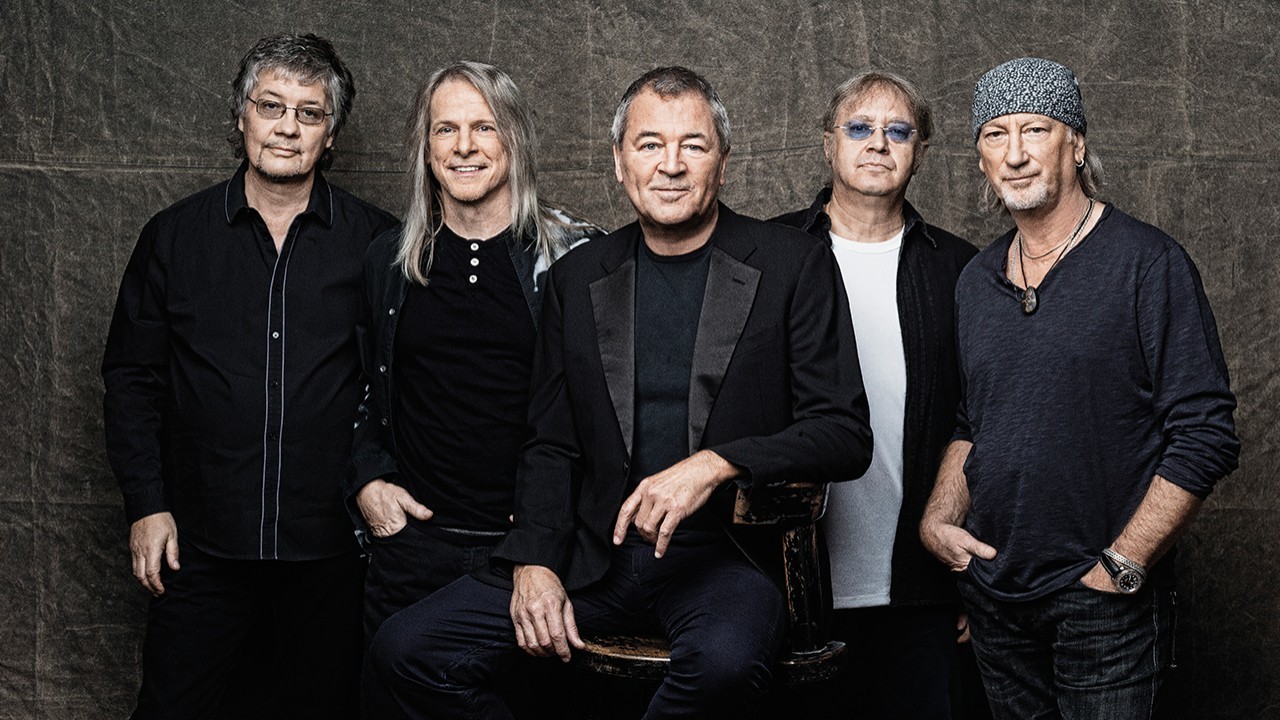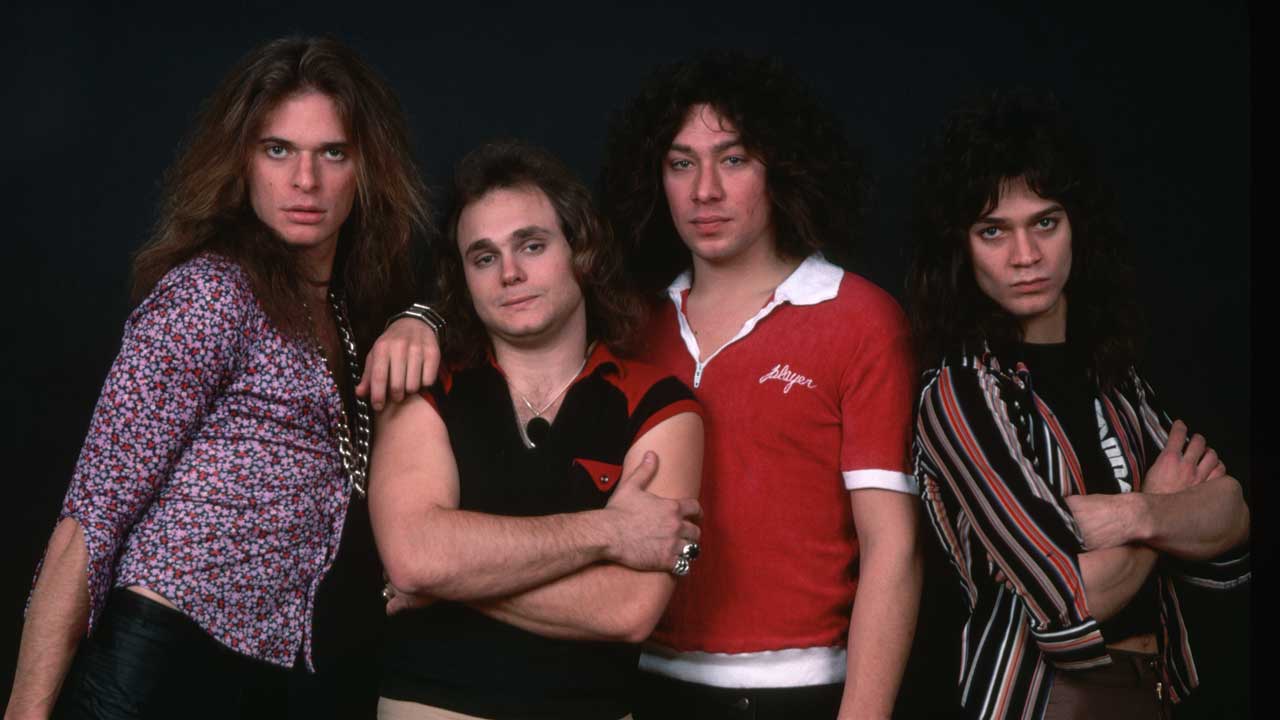Roger Glover's track-by-track guide to Deep Purple's InFinite
Deep Purple bassist Roger Glover takes us through the band's new album, InFinite... and reveals how it might not have been an album at all

Select the newsletters you’d like to receive. Then, add your email to sign up.
You are now subscribed
Your newsletter sign-up was successful
Want to add more newsletters?

Every Friday
Louder
Louder’s weekly newsletter is jam-packed with the team’s personal highlights from the last seven days, including features, breaking news, reviews and tons of juicy exclusives from the world of alternative music.

Every Friday
Classic Rock
The Classic Rock newsletter is an essential read for the discerning rock fan. Every week we bring you the news, reviews and the very best features and interviews from our extensive archive. Written by rock fans for rock fans.

Every Friday
Metal Hammer
For the last four decades Metal Hammer has been the world’s greatest metal magazine. Created by metalheads for metalheads, ‘Hammer takes you behind the scenes, closer to the action, and nearer to the bands that you love the most.

Every Friday
Prog
The Prog newsletter brings you the very best of Prog Magazine and our website, every Friday. We'll deliver you the very latest news from the Prog universe, informative features and archive material from Prog’s impressive vault.
“The album is a dying art form,” says Roger Glover. “They don’t make money, and they’re a waste of time and effort.”
If you’re wondering why Deep Purple recorded InFinite, their 20th album, it seems that it could have been very different. “Someone in the band suggested we should just put out single songs,” says Glover. “Release something every one or two months, and just keep touring. And while this might make financial sense, it didn’t make any emotional sense to me. It might be old fashioned, but I don’t care: we’re an album band, and I’m proud of that.”
He should be. Glover sees InFinite as a state of the union address, and it’s clear the scriptwriters have been working overtime. From furious opener Time For Bedlam — which, sonically speaking, is as good an impersonation of a band in their early 20s as any released by a group whose youngest member is 62 — to the hilarious Ian Gillan monologue that closes On Top Of The World, to the final romp through The Doors’ classic Roadhouse Blues, it might just be the most authentic-sounding Purple album since Perfect Strangers back in 1984.
“If an album’s not going to achieve anything chart-wise, it still doesn’t matter,” says Glover. “Because we had a great time. I couldn’t wait to do it again.”
Below, Roger talks about each of the album’s 10 tracks. InFinite is on sale now.
Time For Bedlam
At the end of a jam that sounds promising, I’ll ask if anyone in the band has a working title for the song. Time For Bedlam was one of mine — it’s a fun play on words — and occasionally a working title will present itself as a proper title. It was even considered as an album title at one point, but we were talked out of it.
Sign up below to get the latest from Classic Rock, plus exclusive special offers, direct to your inbox!
When we write the songs, we steep ourselves in the atmosphere of the song and try and figure out what it’s about. And this one sounded vicious. Especially the keyboard solo. It was bedlam.
Hip Boots
I don’t know how true it is, but years and years ago I heard that the origin of the word ‘hip’ comes from a southern American phrase that says, “you can bury me up to my knees in shit, but I’ve got my hip boots on.” And I’ve had this in the back of my brain for 20 years. It’s a song about freedom, and about being above it all.
I like that fact that it goes into 3⁄4 time. To me, that’s a real kicker.
All I Got Is You
It comes from a phrase Ian Paice uses. You’ll be telling him something, and he’ll be looking at you with a blank look on his face, and finally he’ll say, “Look at it this way. You’ve got me: all I’ve got is you!” Ian’s sense of humour is based on insults.
There’s no forethought about where an album might be going, but we knew we didn’t want to write love songs. We didn’t want to write about fast cars and girls. We should write lyrics for our age. We were looking for stories, and for words we could get our teeth into. And this is a funny song about a relationship gone bad.
One Night In Vegas
This has a really cool groove, going down that Freddie King 16s feel, which we love. It’s one of my favourite tracks.
Don Airey told me this story about a band who played Las Vegas, and the bass player went out and got really drunk. He woke up the next morning with a hangover, unable to remember anything, with a girl he didn’t know lying next to him. He asked who she was, and she said, “I’m your wife!” And they’re still together after 30 years!
Get Me Outta Here
I was sitting at home in my studio messing around with Pro Tools, and took four bars of Paicey’s intro to Bodyline [from 2013’s Now What?!] and slowed it right down. It became almost a reggae tempo, and it sounded great. The drums get thicker, but Ian’s swing feel still comes through. I just loved it, so I wrote a riff over it, and it just resonated with me. The song just flowed.
Maybe I was thinking about The Animals We Gotta Get Out Of This Place, maybe I was thinking about the state of the world we’re in. You just want to run away from it.
- Deep Purple reveal all in the new Classic Rock, on sale now
- Deep Purple’s Roger Glover: No one wants to stop
- Deep Purple - InFinite album review
- Read Classic Rock, Metal Hammer & Prog for free with TeamRock+
The Surprising
Steve started played this pretty chord sequence, and it sounded great. We all joined in a we jammed around it. I gave it the working title of “The Surprising Mr Morse” because it was a surprising thing he played.
They’re Ian Gillan’s words, and I suppose it’s about temptation, but they’re ambiguous, and I like ambiguous words. People can read want they want into it. People will anyway, even when you spell it out. Smoke On The Water is completely literal, and yet a DJ once asked me if we really set fire to an island. You can’t stop people putting their own meaning to a lyric.
Johnny’s Band
Johnny’s Band was almost a pop song. Steve came up with the idea, and not all the band liked it at first: Ian Paice thought it was a bit flippant, but Ian Gillan loved it, and eventually we decided to do it. We knew what the meter of the song was going to be, and realised it needed something really strong over the chorus to make it work.
I was thinking about VH1’s Behind The Music, and that every band’s story is the same. They start with nothing, then they get some success, then they get huge success, then drink and drugs and women destroy them, then they end up suing each other, then 20 years later they get back together again because they realise it was the best time they ever had. Johnny’s Band is the story of every band. It’s a universal story. But it’s not about Purple! There’s a reference to Louie Louie in the guitar solo that places it firmly in the 60s.
On Top Of The World
It’s based on one of Gillan’s true stories, and it happened to him a long time ago, I think in Kuala Lumpar. He had one of those nights, and ended up on top of a building where all the hookers and street dancers lived. He was telling us this story, and Bob [producer Bob Ezrin] wanted to fit the story into the backing track, but it’s too long, and by the end of the afternoon they’d agreed that it wasn’t working.
I had an idea, and condensed the story into a shorter form, but it was still too long for a song. We were just on the point of abandoning it, and I thought, “why don’t we just do something at the end?” And that’s how it came about.
Birds Of Prey
We stated working on a riff I had in the rehearsal room, and after a brief arrangement we did a first take, and I still love that take. We just had so much fun with it because it was so hard and heavy. On the recorded version the ending goes around two or three times, but on the jam we had it goes on 10 or 12 times. We just couldn’t stop playing it. Steve and Don swap solos, and there’s a lovely sense of freedom about it.
People say that they want peace, but it occurred to me that we’ll never have peace. The world has never had peace, and it never will, because the natural state of human beings is conflict. It’s wishful thinking: we’re always going to be at odds with something, and I wanted to say something about that. My first image was 9⁄11 — hence Birds Of Prey — but it goes way beyond that.
One of the things I really like about the song is that it doesn’t repeat itself. It’s not verse-chorus-verse-chorus-solo. It takes you on a journey.
Roadhouse Blues
This was Paicey’s idea. On Now What?! we didn’t Jerry Lee Lewis’s It’ll Be Me [it featured on the Deluxe Editions] purely for fun, and Bob suggested we pick another old track. We spent about a minute thinking: Bo Diddley? Bob Dylan?
Then Paicey related this story about working with tribute bands when he’s off the road, to keep his hand in and to keep fit. They were doing Black Night, and at the end the singer went into Roadhouse Blues. So he suggested it, and Bob said, “that’s it! Let’s do it!” It took less than half an hour, and it’s all live: vocals, harmonica, the lot.

Online Editor at Louder/Classic Rock magazine since 2014. 40 years in music industry, online for 27. Also bylines for: Metal Hammer, Prog Magazine, The Word Magazine, The Guardian, The New Statesman, Saga, Music365. Former Head of Music at Xfm Radio, A&R at Fiction Records, early blogger, ex-roadie, published author. Once appeared in a Cure video dressed as a cowboy, and thinks any situation can be improved by the introduction of cats. Favourite Serbian trumpeter: Dejan Petrović.
